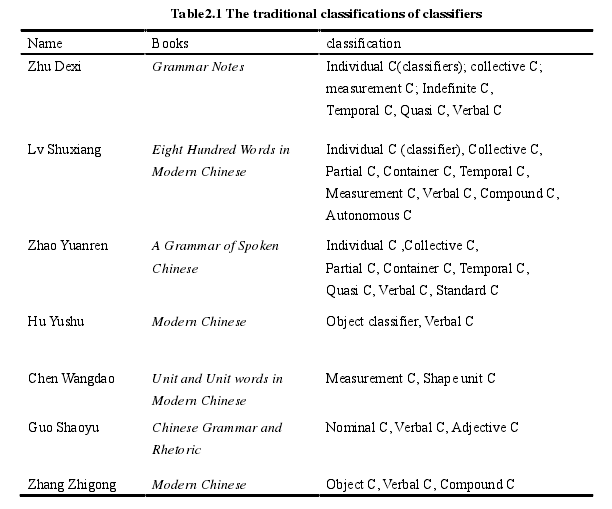联系方式
more本类最新英语论文
- 2024-04-28基于合作学习的思维导图在初..
- 2023-10-13汉语右移位构式的认知视角探..
- 2022-06-28语境丰富度和二语注释对英语..
- 2021-01-14移动学习模式在高中英语词汇..
- 2017-12-27基于语料库的高中英语词汇教..
- 2017-12-22叙事教学法指导下的高中英语..
- 2017-12-19蒙古族高中生的汉语水平对其..
- 2017-12-17英语词汇触发理论视域下的一..
- 2017-12-13英语专业学生专四写作中的词..
- 2017-12-12基于语料库的中国大学生汉英..
more热门文章
- 2015-06-17英语谚语俗大全(中英对照)
- 2010-02-10neat tricks of vocabulary..
- 2009-04-21英语新词汇的变化和发展
- 2009-12-15不定代词的关联理论和元语用..
- 2009-04-12 2008年英语专业论文题目推..
- 2010-03-01interpersonal meaning of ..
- 2010-02-08探讨词汇习得过程中的特点和..
- 2009-04-04英语新词汇研究
- 2010-06-25vocabulary is a key to en..
- 2009-04-12浅谈英语词汇的发展
more留学论文写作指导
- 2024-03-31卡森•麦卡勒斯小说中..
- 2024-03-28美国黑人女性心理创伤思考—..
- 2024-03-27乔治·艾略特《织工马南》中..
- 2024-03-21超越凝视:论《看不见的人》..
- 2024-03-19《哈克贝利•费恩历险..
- 2024-03-13心灵救赎之旅——从凯利的三..
- 2024-02-22文学地理学视角下的《印度之..
- 2023-05-03英、汉名词短语之形容词修饰..
- 2023-02-07目的论视域下5g—the futur..
- 2022-07-04二语英语和三语日语学习者的..
英汉量词与情感名词搭配的认知对比研究 [3]
论文作者:www.51lunwen.org论文属性:硕士毕业论文 thesis登出时间:2017-06-12编辑:lgg点击率:6015
论文字数:38547论文编号:org201706091836286432语种:英语 English地区:中国价格:$ 66
摘要:本文是英语词汇学论文,本研究从认知语言学的角度,结合一组证据,对认知语言学中的中、英文量词进行了对比分析。这项研究还加强了我们的理解是基于身体经验和日常知识的说法。

2.2 Previous studies of classifiers
The classifier is a special part of speech in Sino- Tibetan language family. It is a long period of time before the classifier is given a definition and designated as a part of speech. Ma Jianzhong (1898) is the first person to mention the classifier. In his opinion, the classifier is a subcategory of the noun and is used to quantify things. Li Jingxi (1924) put forward the term “liangci” and believed that the classifier is a subcategory of the noun. Collocated with numerals, the classifier is employed to describe the amount of the people or things. Although he proposed the term of “liangci”, the classifier does not get rid of the fate of being a subcategry of the noun and the term ‘liangci” has not been accepted by other scholars. Liu Danqing (1988) named the classifier as “helping noun” because he proposed an idea different from others-- the classifier is not a subcategory of the noun but a subcategory of the pronoun. He believed that “the noun is the substance without limitation in amount. The limitation has to be expressed by the words similar to the noun. Those words are not nouns and we can call them “helping noun”. Lv shuxiang (1953) also sees the classifier as a subcategory in the category of the noun and named it as “adverbial noun”, which is the unit of things or behavior and can be called as “unit word” or “Liangci”. Later Lv (1982) changed his opinion, calling the classifier as “the word of unit” i本论文由英语论文网提供整理,提供论文代写,英语论文代写,代写论文,代写英语论文,代写留学生论文,代写英文论文,留学生论文代写相关核心关键词搜索。

 英国
英国 澳大利亚
澳大利亚 美国
美国 加拿大
加拿大 新西兰
新西兰 新加坡
新加坡 香港
香港 日本
日本 韩国
韩国 法国
法国 德国
德国 爱尔兰
爱尔兰 瑞士
瑞士 荷兰
荷兰 俄罗斯
俄罗斯 西班牙
西班牙 马来西亚
马来西亚 南非
南非






